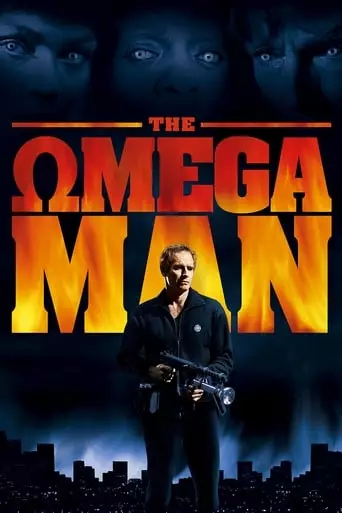
The Omega Man (1971) Watch Online Free
Due to an experimental vaccine, Dr. Robert Neville is the only human survivor of an apocalyptic war waged with biological weapons. Besides him, only a few hundred deformed, nocturnal people remain – sensitive to light, and homicidally psychotic.
The Omega Man, released in 1971 and directed by Boris Sagal, is a post-apocalyptic science fiction film based on Richard Matheson’s novel I Am Legend. The movie stars Charlton Heston as Robert Neville, the apparent last surviving human in a world devastated by biological warfare. Neville struggles not only to survive in a city overrun by mutated, nocturnal humans known as “The Family,” but also to find a cure for the plague that has turned most of humanity into these albino, light-sensitive creatures.
The film opens with Neville, a military scientist, seemingly the only uninfected human left in Los Angeles after a global biological disaster. A war between superpowers led to the spread of a virus that wiped out most of the population, leaving behind survivors who became victims of the mutated disease. As the last man alive, Neville spends his days hunting the mutants, searching for a cure, and trying to maintain his sanity in a desolate, empty city.
Neville’s solitary existence is interrupted when he meets a group of uninfected humans, including Lisa (played by Rosalind Cash). This group is part of a resistance to the Family, a night-dwelling, aggressive cult-like faction led by the charismatic Matthias (Anthony Zerbe), who believes that Neville and his kind are an abomination. The film explores Neville’s relationship with Lisa and his struggle against Matthias, culminating in a tragic and poignant ending where Neville sacrifices himself for the survival of humanity.
The Omega Man is notable for its engagement with themes like survival, human resilience, and the ethical dilemmas posed by bio-warfare. It blends traditional post-apocalyptic tropes with philosophical questions about the future of humanity. The film also explores the consequences of scientific arrogance and the hubris of playing with nature, reflecting the political tensions of the time, especially regarding nuclear and biological threats during the Cold War.
The production design effectively captures the eerie emptiness of a city without humans, with empty streets and derelict buildings. Neville’s psychological decline is evident in his isolation, and the film conveys a sense of dread and loneliness. However, the pacing can sometimes feel uneven, especially in scenes where Neville appears detached from his own situation, making it difficult to fully empathize with his character.
The movie’s portrayal of the mutants as a “hippie” cult group—representing a countercultural movement—was a notable deviation from Matheson’s original vampire-like creatures in the novel, and this shift adds a layer of social commentary about 1970s America, particularly regarding race and societal breakdown
After watching The Omega Man, viewers are likely to feel a mix of melancholy and contemplation. The film’s tragic ending, coupled with its exploration of isolation and the loss of humanity, leaves a lasting emotional impact. The sense of loneliness that pervades Neville’s journey resonates deeply, particularly in scenes that emphasize his struggle against the passing of time and the absence of others.
The finale, in which Neville makes the ultimate sacrifice, evokes both sadness and a sense of hope, as it suggests that, even in the darkest of times, human resilience can shine through. For some, the film’s social commentary on biological warfare and the consequences of scientific overreach may prompt reflection on contemporary issues, making it not just a thriller, but a film that continues to offer relevance in today’s world.
In conclusion, The Omega Man stands as a classic in post-apocalyptic cinema, offering a compelling blend of action, philosophical exploration, and social commentary. Despite some pacing issues and its departure from the original novel, the film remains a noteworthy entry in the genre, capturing both the spirit of its time and timeless themes of survival and human nature.
